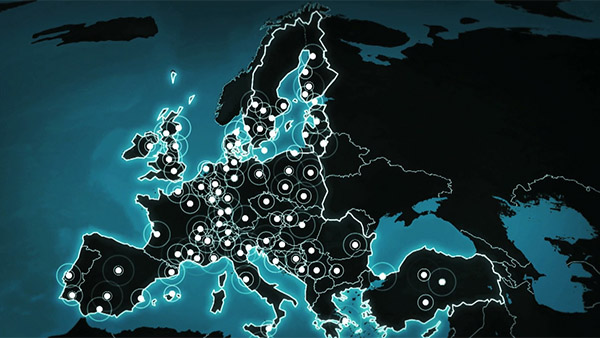Table of contents
The EU Falsified Medicines Directive (FMD) is coming in February of 2019, and our recent Meeting EU FMD Warehouse Requirements webinar shows that the industry still has a lot of questions about the law’s impact on distribution activities. Manufacturers with wholesale licenses or distribution centers, 3PLs, and wholesale distributors all need to understand the changes to come from this directive.
The topic that raises the most questions? Decommissioning, which is the process of reporting that a serial number is no longer in use because the product that serial number is affiliated with has left the supply chain. A serial number should be decommissioned, for example, when the product has been exported from the EU, has been sold to an institution that falls under Article 23, or has been dispensed to a patient. The practice of decommissioning serial numbers serves to keep drugs out of the supply chain once they are expired or dispensed, so criminals can’t resell or distribute them.
Here are seven commonly asked questions and answers on decommissioning:
Does the EU FMD apply to all drug product? If not, how do we know if product must or should be decommissioned?
In general, EU FMD applies only to prescription products. There are some prescription products that are excluded as part of a short "white list" which includes medicinal gases, radiopharmaceuticals, and homeopathic medicinal products. There is also a "black list" addition of some forms of over the counter (OTC) medicines like Omeprazole. Member States are allowed to increase the scope of products on the “black list” that will be covered under EU FMD for their own country. What this means is that a product that is defined as in scope for EU FMD in one country may be out of scope for another.
How and when do dispensers decommission products?
Community pharmacies must decommission products when they are supplied to the patient. Hospitals, however, can decommission at any time between receipt of the medicine and dispensing to the patient. To make decommissioning simpler, dispensers are choosing a scanning system for hospitals and pharmacies that they use to scan the product being dispensed, verify that medicine, and mark it as dispensed to decommission that serial number. Learn more about EU FMD scanning solutions that can help you to connect to National Medicines Verification Systems throughout the European Union in order to verify and decommission medicines in accordance with EU FMD.
According to the law, should wholesalers decommission a product’s serial number prior to selling it to an organization for research?
The answer to that depends on the market destination of the clinical trial product. Under Article 23(g), wholesalers must decommission products being supplied to a research institution if decommissioning is required by the given country. The Delegated Regulation itself speaks to decommissioning of clinical trial products by manufacturers or healthcare institutions only. Wholesalers should contact the authority in the country of interest.
Who should decommission packs that are sent to another Member State on a Named Patient basis where the product is not registered? Would the wholesaler sending the product or the wholesaler in the destination country be the one to decommission?
A Named Patient Program (NPP) provides patients and physicians with medicines that are not available in their own country for reasons that can include a drug shortage or discontinuation. The medicines that are provided through this program fall under Article 5(1) of Directive 2001/83/EC, so safety feature requirements do not apply to wholesalers unless specifically mandated by a given country. Healthcare institutions are encouraged, but not strictly required, to decommission medicines sent through a Named Patient Program.
Will unique identifiers be in National Systems prior to February 9, and will they need to be retroactively decommissioned by wholesalers?
There may be some identifiers in the National Systems, but decommissioning by wholesalers, where required, is not obligatory under EU FMD until February 9, 2019.
National Systems guarantee a response time of 300 milliseconds for verification inquiries, but how will the response time be impacted if you are decommissioning an EU product that’s intended for another market?
The response time of 300 milliseconds is for queries going directly to a national system where the serial number resides. If a query is sent to a system that does not hold the serial number—for example, if the query is sent to SecurMed (which manages the UK’s Medicines Verification System) but the product was actually intended for the German market, whose National System is managed by securPharm—then SecurMed will send that query up to the European Hub. The European Hub will then query the master data, determine which country that GTIN belongs to, and forward the request to securPharm. securPharm will then answer that request and send it back to the European Hub, who will then send that back to SecurMed in the UK, and then back to the requestor on their handheld device. The response time in scenarios such as that is likely to be about 5 times longer, in addition to internet latency times.
What's the most efficient way to manage decommissioning in the warehouse?
TraceLink's Smart Inventory Tracker manages decommissioning for warehouse operations. It's a mobile application that can be used on handheld scanners or smartphones in the warehouse to verify and decommission packs. Smart Inventory Tracker enables the scanning and interpreting of a serial number, and stores it in a company’s TraceLink serialization repository. That information can then be used to make the direct report to the National System for wholesalers using a wholesaler connection, or can be reported directly to the EU Hub for marketing authorization holders.



